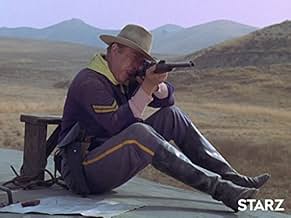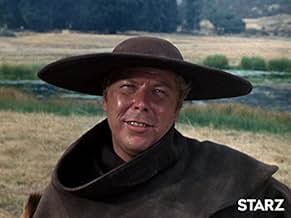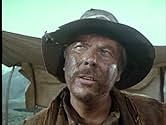Albert Salmi(1928-1990)
- Artiste
- Bande-son
Albert Salmi est né le 11 mars 1928 dans l'état de New York, États-Unis. Il était acteur. Il est connu pour Les Frères Karamazov (1958), Les Évadés de la planète des singes (1971) et Le Dragon du lac de feu (1981). Il était marié à Roberta Pollock et Peggy Ann Garner. Il est mort le 22 avril 1990 dans l'état de Washington, États-Unis.
- Récompenses
- 2 victoires
Artiste
Bande-son
- Autres noms
- Albert & Roberta
- Taille
- 1,88 m
- Date de naissance
- Date de décès
- 22 avril 1990
- Spokane, Washington, États-Unis(meurtre-suicide)
- ConjointsRoberta Pollock25 avril 1964 - 22 avril 1990 (their deaths, 2 enfants)
- EnfantsCatherine Ann Salmi
- ParentsSvante Salmi
- Autres œuvresStage: Appeared (as "Roger Gatt"; Broadway debut) in "End as a Man" on Broadway. Written by Calder Willingham, based on his book. Directed by Jack Garfein. Vanderbilt Theatre (moved to The Lyceum Theatre from 17 Dec 1953-16 Jan 1954): 14 Oct 1953-16 Jan 1954 (105 performances). Cast: Robert Dirk, Anthony Franciosa (as "Starkson") [Broadway debut], Ben Gazzara (as "Jocko de Paris") [Broadway debut], Martin Greenlee, Harry Guardino (as "Cadet Officer") [Broadway debut], Richard Heimann, Pat Hingle (as "Harold Koble"), Paul E. Richards, Marc Richman, Eli Rill, Steven Ross, Warren Slocum (as "Second Orderly"), William Smithers, Arthur Storch (as "Maurice Maynall Simmons"), Frank M. Thomas (as "Gen. Draughton"), Richard Vogel. Produced by Claire Heller.
- Annonces publicitaires
- AnecdotesOn April 22, 1990, Albert and Roberta Salmi were found shot to death in their home in Spokane, Washington. The police surmised that Salmi, who was separated from Roberta at the time and was suffering from severe clinical depression, shot his wife and then himself.
- Citations[In 1990, regarding his early years at the Actor's Studio in New York] The actor wanted the audience to recognize an unsavory character as truthfully as he could, so that any audience seeing it would be repelled by that individual and vow never to be like him. If one person left a performance saying, "I will never be as bad as that character was", the actor felt fulfilled. If the person left the theater better than he entered it, we felt we were accomplishing something. The reverse was true, too. If one in the audience saw and believed the goodness in the human condition and sought to emulate this behavior, we, the actors, felt a warm sense of accomplishment. Sometimes, people would come backstage in these amateur school productions and state in an oblique way that they were better people for seeing the production. This was better than any award an actor could get, and still is!
FAQ14
Alimenté par Alexa
Contribuer à cette page
Suggérer une modification ou ajouter du contenu manquant































